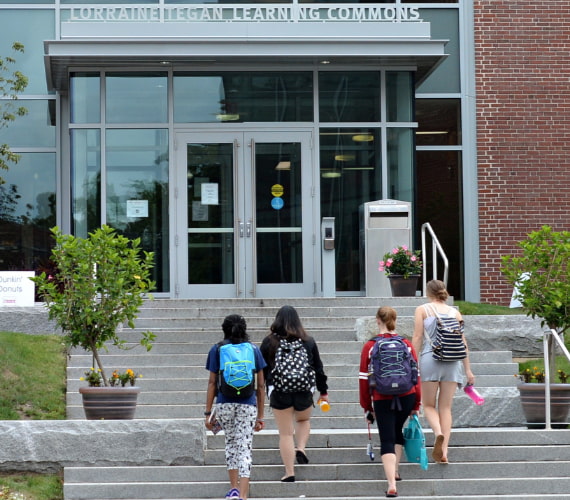The decision to return to school isn’t just about earning a degree—it’s about reshaping your future. Maybe you’ve hit a ceiling in your career, and you need a degree to move up. Or perhaps you started college years ago but never finished, and that unfinished goal has been on your mind ever since. Whatever your reason, going back to school as an adult is about more than just taking classes; it’s about investing in yourself and your future.
But deciding to go back to school as a working professional is a big step. You might be asking yourself, Is it too late? Will this investment pay off? Can I juggle school with my responsibilities? If you’re considering a degree completion program, the good news is you’re not alone. Many adult learners are in the same position, and today’s programs are increasingly designed to support students like you.
But not all programs are created equal. Here are five key factors to consider to find the program that best fits your needs.
Key Takeaways
- The best degree completion program will help you build on your existing experience or provide the necessary foundation for a career change, ensuring that your education directly contributes to your long-term success.
- Flexibility is key for working professionals, so comparing online, hybrid, and in-person options will help you select a program that allows you to balance school with your responsibilities.
- Programs with accessible faculty, dedicated advising, and career services provide the guidance and networking opportunities needed to stay on track and transition smoothly into your next professional step.
- Beyond tuition, considering fees, financial aid opportunities, and whether tuition rates remain stable over time ensures you make a financially sound decision that aligns with your budget and future earnings potential.
5 Factors to Consider When Comparing Degree Completion Programs
1. Understand Your Educational and Career Goals
Before comparing degree completion programs, take time to reflect on what you want to achieve with your education. Are you looking to advance in your current field, transition to a new career, or develop specialized expertise? Clarifying your goals will help you determine which programs offer the right curriculum, structure, and learning opportunities to support your path.
Some programs are designed for career changers, providing foundational courses that help bridge knowledge gaps, while others focus on deepening expertise for professionals already in the field. If you're continuing in your current industry, consider programs that build on your previous coursework and work experience. If you're entering a new field, look for programs that introduce core competencies and offer relevant skill-building opportunities.
It's also important to evaluate how a program prepares students for real-world applications. Some degrees emphasize hands-on, project-based learning, while others focus more on theoretical knowledge. If gaining practical experience is a priority, look for programs that incorporate internships, capstone projects, or industry partnerships that allow you to apply what you’ve learned in a professional setting.
“In many fields, employers are looking for candidates who can demonstrate both knowledge and practical skills,” says David Rudder, the Dean of Professional Studies at Regis College. “The best programs ensure students are not only learning concepts but also applying them in meaningful ways.”
2. Evaluate Program Flexibility
For working professionals, flexibility is often a critical factor in choosing a degree completion program. Balancing coursework with job responsibilities, family commitments, and personal obligations requires a program that fits your learning style and schedule. As you compare options, consider whether an online, hybrid, or in-person format will set you up for success.
Some students thrive in online environments, appreciating the ability to work at their own pace and access course materials at any time. Others may find they need structured, face-to-face interactions to stay engaged and absorb information effectively. Recognizing how you learn best can help you avoid frustration and ensure a positive academic experience.
“One of the biggest mistakes people make is assuming online learning is right for them just because it’s flexible,” Rudder adds. “Being an online learner requires a high level of independence. You want to make sure programs are designed specifically for adult learners, not just traditional courses thrown online.”
Beyond course delivery methods, evaluate how a program accommodates changes in your personal and professional life. Programs that offer evening, weekend, or asynchronous classes can help you stay on track while managing other commitments. Some institutions also allow students to modify their course load as needed, providing the option to take fewer credits during particularly busy periods.
“Life happens,” Rudder notes. “We work with students to pivot when needed. Maybe taking nine credits isn’t realistic, and you need to drop to six for a semester. That flexibility is crucial.”
3. Assess Academic and Student Support Services
Strong academic and student support services can enhance your learning experience and help you stay on track. When comparing programs, consider factors like faculty accessibility, academic advising, and career services to ensure you’ll have the resources needed to succeed.
Instructor availability is an important consideration. Some programs provide opportunities for one-on-one meetings, interactive discussions, and timely feedback, while others are more self-directed. Understanding how accessible faculty members are can help you determine whether a program offers the level of engagement and mentorship you prefer.
“Whoever you’re speaking to on the admissions side should be able to answer your questions about faculty support,” Rudder adds. “And if they can’t, ask to speak with a professor. Many institutions even offer self-assessments to help you determine if online learning is the right fit.”
Career services and professional development opportunities can also play a key role in your decision. Some schools offer career coaching, résumé assistance, and job placement support, while others have strong alumni networks that provide mentorship and connections within your industry. If advancing your career is a primary goal, looking into these services can help you find a program that supports your professional growth.
4. Compare Costs and Financial Aid Options
Cost is one of the biggest concerns for adult learners, but it’s important to look beyond just the price per credit when comparing programs. In addition to tuition, factor in the cost of textbooks, technology fees, lab materials, and any other expenses that may not be immediately obvious. Some programs include these costs in a flat tuition rate, while others charge them separately, which can significantly impact the total price.
Exploring financial aid options can also make a significant difference in affordability. Many schools offer scholarships and grants specifically for adult learners, and some employers provide tuition reimbursement programs to help offset costs. Looking into these opportunities early in the process can help you determine how much financial assistance you may be eligible for.
“There’s a lot of foundational money available to help adults return to school,” Rudder says. “Many workforce development councils offer funding, but students need to be proactive in seeking out these opportunities.”
Another key factor to consider is tuition stability. “Some institutions guarantee that your tuition won’t increase over time,” Rudder notes. “That kind of stability can make financial planning much easier.” Understanding whether tuition is locked in or subject to increases can help with long-term financial planning.
Additionally, take the time to review payment plan options. Some schools allow students to pay tuition in installments rather than in one lump sum, which can make managing expenses more feasible. By thoroughly comparing costs, financial aid options, and payment structures, you can choose a program that fits both your educational and financial goals.
5. Review Program Reputation and Outcomes
A program’s reputation can significantly impact your career opportunities, making it essential to evaluate key indicators of program quality before enrolling. Some common reputation factors can include:
- Graduation rates
- Retention rates
- Job placement statistics
Another important consideration is how well a program prepares students for industry-recognized certifications and licensure exams. If your career path requires passing a certification test, look into the program’s track record for student success in these exams. A high pass rate often reflects strong academic preparation and effective faculty support.
“If I’m investing in a program, I want to know that students are passing licensure exams at a high rate,” Rudder says. “Even if the tuition is slightly higher, a program with a strong track record of success is a much better investment than a cheaper program where only 60 percent of students pass.”
Beyond statistics, employer and alumni feedback can provide valuable insights into how a degree from a particular institution is perceived in your industry. Some programs have strong relationships with employers, offering internship placements, direct hiring pipelines, or networking events that can help graduates secure jobs after completing their degree. If career advancement is a key goal, researching these connections can help you determine if a program will open the right doors.
Choose the Program That’s Right for You
At the end of the day, choosing the right degree completion program is about more than just cost—it’s about finding a program that supports your learning style, career goals, and personal responsibilities.
“Going back to school is a big decision, and it’s not just about the here and now,” Rudder says. “It’s about making sure the experience sets you up for long-term success.”
By evaluating flexibility, support services, costs, and career outcomes, you can make an informed choice that sets you up for success—both in school and beyond. And remember, you’re not alone. Many institutions, including Regis, are built to support adult learners and help them navigate this journey. If you ask the right questions and find the right fit, your degree can be a powerful tool for personal and professional growth.




